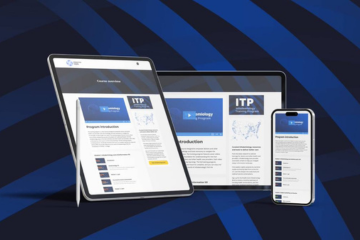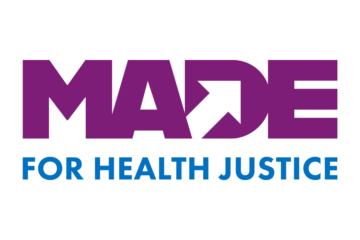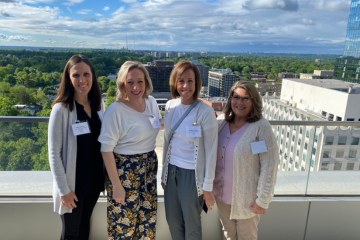
In a challenging year for public health, the American Public Health Association’s annual meeting provided a virtual space of respite and renewal. Centered around the theme of “Creating the Healthiest Nation: Preventing Violence,” APHA 2020 spanned hundreds of sessions on reducing the plague of violence in communities, as well as bolstering the public health infrastructure, leading with health equity, and other priorities for practitioners and advocates. Read these 10 inspiring quotes from public health leaders at APHA 2020.
What keeps you up at night? Is it racism, climate crisis, kids in cages, patriarchy, poverty, preventable pandemics? We do not have to accept the status quo. We can do better on behalf of each other. We can achieve the greatest good for the greatest number of people. And together, I am certain we will successfully diagnose the pathogens of yesterday and today. And the tomorrow that we build will be healthier, more equitable, and more just. —Mona Hanna-Attisha, MD, MPH, Founder and Director, Michigan State University and Hurley Children’s Hospital Pediatric Public Health Initiative

Public health begins when all of us recognize the humanity and dignity of every human being. Sometimes we suffer, sometimes we are sick, sometimes there is crisis, sometimes there is infection, because people have had their humanity and their dignity doubted. And it is the role of public health to step into that breach. To wrap our arms around those who’ve been told their lives don’t matter. To affirm humanity and dignity. —Bryan Stevenson, JD, Founder and Executive Director, Equal Justice Initiative
If we really are going to define what public safety looks like, it’s not just the absence of violence, blood, and trauma. It’s the presence of opportunity, the presence of promise, the presence and access of living-wage jobs and quality after-school programs. And so we’ve never tried to pit a public health approach to violence prevention against policing. What we’ve tried to get people to understand is there needs to be an equitable investment in violence prevention, period. —Reggie Moore, Director, Office of Violence Prevention, City of Milwaukee Health Department
So much of what we try to respond to in this country goes back to racism unaddressed. But worse than unaddressed, unacknowledged. And unacknowledged to the point that we don’t even talk about the origin story of the nation. This is a nation built on genocide, stolen land, human bondage, and slave labor. And the narrative, which is a narrative of a hierarchy of human value that was embraced during that time to be able to justify such horrific actions, but did not end with slavery, continues to this moment — a hierarchy that values some lives more than others. And we see it. We see it in education, we see it in health, we see it in the criminal legal system, we see it all over. And while we’re having this reckoning with racism, and so many corporate leaders and civic leaders and elected officials are saying, ‘No more. It stops here,’ it’s got to be more than stopping it in the heart. It’s got to be more than just saying, ‘We’re going to do better going forward.’ —Angela Glover Blackwell, JD, Founder in Residence, PolicyLink
Martin Luther King said profoundly, ‘It may well be that we will have to repent in this generation, not merely for the vitriolic words and the violent actions of the bad people, but for the appalling silence and indifference of the good people.’ We are in a moment of national reckoning, and we have to take advantage of this opportunity. I like the way Barack Obama put it. Martin Luther King said, ‘The arc of the universe is long, but it bends towards justice.’ Barack said it doesn’t bend on its own. We have to come together and bend the arc of justice. …We need to build momentum and take advantage of this opportunity so that we can get…the sustained policy changes we’ve all been talking about. —David Williams, PhD, MPH, Professor of Public Health and Chair, Department of Social and Behavioral Sciences, Harvard T.H. Chan School of Public Health

We are now experiencing the collective impact of the COVID pandemic, as well as other types of pandemics, if you will. Those pandemics are those associated with xenophobia, with racism, with persistent and multi-generational poverty, and with social injustice, including that based on ability and disability. …As these pandemics upend the world we live in, we certainly need to respond immediately to prevent hardship and tragedy and to save lives. But we also need to go beyond a short-term focus on rescue and recovery. Instead, we should be seizing the opportunity to reimagine and remake the future of the public health system. —John Auerbach, MBA, President and CEO, Trust for America’s Health
In the core of me, I hate to see squandered potential. I hate to see how racism saps the strength of the whole society through the waste of human resources. I hate to see children’s genius not invested in. And so my job is to continue the fight that I’ve inherited and pass it on to my children, but we will know that we are successful when the term ‘disadvantaged child’ will have no meaning, because we won’t even be able to imagine a child born into disadvantage, or finding themselves falling into disadvantage. —Camara Phyllis Jones, MD, MPH, PhD, Senior Fellow, Satcher Health Leadership Institute and Cardiovascular Research Institute, Morehouse School of Medicine

If we are gonna tackle the huge issues that impact health, like poverty and racism, the truth is, we can’t do that alone. The future of public health is crossing sectors. Working with partners outside of traditional public health, with everybody doing the part they do best to bring together all the players who impact the social determinants, because it’s all linked. It’s all about health. That means we need to partner with the same sectors we’ve been talking about: education, employment, housing, food, transportation, and healthcare. Public health is the right group to bring stakeholders to the table, or to many tables, to positively impact the social determinants. We in public health are collaborative by nature. We’re conveners, we understand the power of synergy. We are the right people to change the way we as a society approach health. You are those leaders. —Lisa M. Carlson, MPH, MCHES, Immediate Past President, APHA
One thing that we’ve learned with the public execution of George Floyd and Breonna Taylor is that law enforcement should never again be a single point of contact for safety in our respective communities. Safety is a shared strategy. And we want to make sure that residents, that people, have an opportunity to engage the public safety process, to understand public safety policy by putting victims and survivors at the center of this overall strategy, and that we collectively work together to heal this country. —Aqeela Sherrills, Executive Director, The Reverence Project
Like natural disasters, pandemics have a wicked way of exposing the cracks in the systems that are created to deal with them in times of need. And just like HIV did almost 40 years ago, coronavirus once again is exposing the tragic outcome of inadequate funding to public health services, combined with an appalling lack of leadership at the federal level. But it’s not only lack of funding and leadership. Pandemics also thrive amidst inequity and racist practices. …And these practices remain deeply embedded in many aspects of our institutions. —José Ramón Fernández-Peña, MD, MPA, President, APHA




